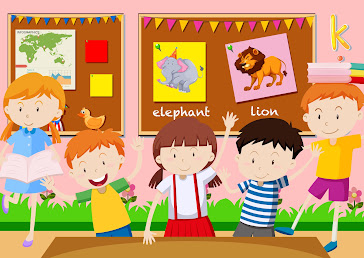Provide open-ended materials
Open-ended materials are items that do not have a predetermined use or outcome.
This type of material allows children to use their imagination and creativity to come up with their own ideas and solutions.
Examples of open-ended materials include blocks, playdough, and loose parts like sticks, stones, and shells.
By providing children with open-ended materials, they can explore and experiment with different ideas and develop their problem-solving skills.
Encourage pretend play
Pretend play allows children to explore and experience the world around them through role-playing. It helps develop their social skills, creativity, and imagination.
Encourage children to dress up and act out scenarios or stories that they have created themselves.
You can provide them with props such as costumes, hats, and accessories to enhance their play.
Create a Sensory-Rich Environment
Sensory-rich environments are essential for young children's development, as they help them to explore their senses and develop their creativity.
Sensory play can include activities like water play, sand play, and exploring different textures, colours, and smells. Also remember only a best preschool in Indore can help in providing this kind rich environment
Sensory-rich environments also provide children with opportunities for imaginative play, as they can use their senses to create stories and scenarios.
Support Open Ended Questions and Conversations
Asking open-ended questions encourages children to think deeply and creatively.
It helps them to develop their language skills and encourages them to explore different ideas and perspectives.
During imaginative play, ask children open-ended questions to prompt their creativity and curiosity. For example, "What would happen if?" or "What would you do if?".
Encourage Collaboration and Teamwork
Collaboration and teamwork are essential skills for children to learn, and imaginative play provides an excellent opportunity for them to practice.
Encourage children to work together to create scenarios and stories, and provide them with opportunities to collaborate on projects or activities.
This will help them to develop their social skills, communication skills, and problem-solving skills. And for that focus on searching for the best preschool in Indore
Provide Opportunities For Outdoor Play
Outdoor play provides children with opportunities to explore and experience the natural world, which can stimulate their creativity and imagination.
Nature is full of open-ended materials and sensory-rich environments, which can provide children with endless opportunities for imaginative play.
Encourage children to explore and play outside, whether it's in a park, garden, or nature reserve.
In conclusion, imaginative play is an essential tool for nurturing creativity in young children. By providing children with open-ended materials, encouraging pretend play, creating a sensory-rich environment, supporting open-ended questions and conversations, encouraging collaboration and teamwork, and providing opportunities for outdoor play, we can help them to develop their creativity, imagination, and problem-solving skills.

Comments
Post a Comment